Some situations, events, and conditions cause anxiety.
This is a normal feeling that everyone experiences sometimes. However, if possible, we all want to avoid feeling anxious.
After a client came to me with doubts that his pre-workouts were causing anxiety, I started researching the topic more.
I've talked with professional athletes and read anything I could get my hands on related to the topic, and here's what I've found.
Quick Summary
- Certain ingredients in pre-workout supplements can trigger anxiety, such as Yohimbe bark extract, caffeine, and bitter orange extract.
- Conversely, supplements like BCAAs, L-citrulline, creatine monohydrate, niacin, and beta-alanine are typically not associated with anxiety.
- The Mayo Clinic recommends a daily caffeine intake limit of 400mg for healthy adults, which is pertinent given that excessive caffeine in pre-workouts can contribute to anxiety.
- My personal opinion is that while pre-workouts can be effective for boosting energy, it's crucial to choose products with safe and well-researched ingredients to minimize the risk of anxiety and other side effects.
How Can Pre-Workout Cause Anxiety?

It’s not just theory; in my own experience, I've found that certain pre-workouts don't cause anxiety directly, but specific ingredients in them, like high caffeine levels, have led to jitteriness and nervousness in my workouts.
I’ve already said, but it bears repeating: anxiety is normal, and everyone feels it at least sometimes.
If you’re a professional athlete, you’ll feel some anxiety from time to time, but even if you’re not, it’s bound to happen occasionally.
But, if you take a pre-workout supplement that makes you feel anxious, this can build up over time and become a problem.
Usually, it’s pre-workout supplements that rely on stimulants that are the issue.
Moreover, there are several ingredients you should watch out for. Once you discover which ingredient is causing your anxiety, you can avoid it in the future.
How to Avoid Anxiety in Pre-Workouts

Through my experience, I've realized that dodging anxiety and side effects in pre-workouts means picking safe ingredients. But, if you're not a nutritionist, figuring out which ingredients are a no-go versus the good stuff for your fitness goals can be tricky.
When choosing pre-workouts, watch out for anxiety-triggering stuff like high caffeine or synephrine, which can ramp up your heart rate and jitters.
Read labels closely and steer clear of anything that might mess with your mental well-being. Opt for pre-workouts with natural ingredients that balance energy, focus, and endurance for a smoother, worry-free workout.
Now, let's break down those anxiety-inducing ingredients.
4 Ingredients That May Cause Anxiety
1. Yohimbe Bark Extract
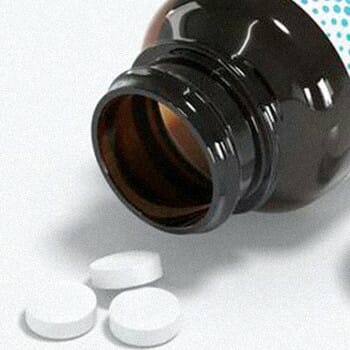
Apart from Yohimbe bark extract, this ingredient is also called Yohimbe and Yohimbine.
Yohimbe bark extract contains a very high amount of Yohimbine, which is a chemical, and it’s banned from anything being used as a supplement. It’s considered a prescription drug in the US.
However, the FDA hasn't yet banned the Yohimbe Bark Extract, so it’s not illegal for supplement companies to add this ingredient to pre-workouts.
Yohimbe causes various side effects, such as:
- Insomnia
- Irregular heartbeat
- Seizures
- Tremors
- Heart attack
- Anxiety
That’s not all. What’s even worse is that Yohimbe should be avoided by people suffering from these:
- Anxiety
- High and low blood pressure
- Chest pain
- Depression
Yohimbe will make these symptoms even worse. Yohimbe not only exacerbates anxiety but causes it as well, so it’s best to avoid it in your pre-workout supplements [1].
2. Caffeine

I’m not saying caffeine is always bad. I’m the first one who wouldn’t function without my 10 am morning coffee hit. The problem is in the dosage. An average cup of coffee has between 80 to 120mg of caffeine, while an average 12oz energy drink has about 120mg of caffeine.
I’ve checked the available legal pre-workout supplements, and the strongest of them have between 350 to 500mg per serving.
That's like chugging 3 or 4 energy drinks in one go. Even milder pre-workouts pack at least 200mg of caffeine. So, for those sensitive to caffeine, even these can cause side effects.
Mayo Clinic says a healthy adult should cap caffeine at 400mg a day [2]. Meaning, if you're not ready to skip your morning coffee and other daily caffeine fixes, opting for a high-caffeine pre-workout could push you towards a caffeine overdose.
Caffeine side-effects include:
- Anxiety
- Irregular heartbeat
- Dizziness
- Trouble sleeping
- Nausea
If you’re prone to anxiety, I recommend sticking to a pre-workout supplement without caffeine or taking one whose caffeine dose is under 200gm per serving. In this way, you’ll still get the energy levels needed for a gym session, but without any anxiety problems.
3. Bitter Orange Extract

Bitter orange is very common on the ingredient list of pre-workout supplements. Its main benefit is promoting fat loss. The reason it’s added to a pre-workout is that it contains Synephrine, which is a stimulant.
However, Synephrine is a banned substance under the National Collegiate Athletic Association (NCAA) regulations, and it can cause heart problems, such as heart arrhythmia.
Moreover, because many pre-workout supplements also contain caffeine, there’s a high chance that taking bitter orange extract will increase your anxiety.
4. Other Stimulants
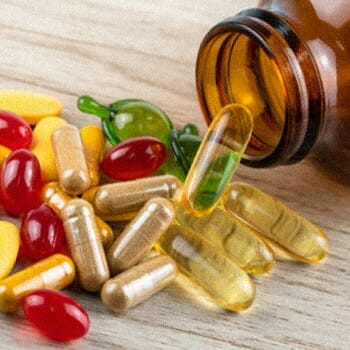
Taking too many stimulants can cause anxiety. Think about how you feel when you drink too much coffee. Chances are your heart rate increases, and after, you feel tired.
The same thing goes for consuming a pre-workout with more than one stimulant. This is why I recommend choosing an organic pre-workout that only has a few proven stimulants because it won’t cause anxiety.
Avoid proprietary blends because you can never know what they contain, and check which ingredients are in the supplement, and most especially, check their serving size.
5 Supplements That Don’t Cause Anxiety
I’ve covered what you should avoid. Now let’s have a look at which supplements won’t cause anxiety.
1. BCAA
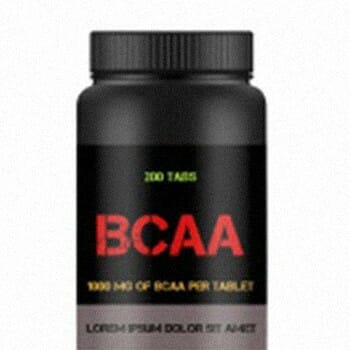
Branched-chain amino acid, or BCAA contains:
- Leucine
- Isoleucine
- Valine
All of these are good for muscle growth [3]. Leucine helps stimulate muscle protein synthesis, which is the muscle-making process. Good quality BCAAs will have a high dose of leucine for potency.
Isoleucine helps increase glucose uptake, and this restores glycogen stores. When glycogen stores are full, your body won’t steal energy from the muscle tissue.
Valine helps create muscles by synthesizing protein. Because this is an essential amino acid, the body can start building once it’s in your bloodstream.
“BCAAs are of interest to those who want to build muscle because of their role in protein synthesis and turnover and energy regulation. BCAAs also play a role in glucose metabolism and immune and brain function."
- Ashley Leone, Sports Dietician
As for the BCAA and anxiety, a study done on 3000 adults found that a higher intake of BCAA reduces the chances of anxiety and depression. We can conclude that BCAA is one of the supplements that’s good for the body.
Related Article: Best BCAA Brands
2. L-Citrulline
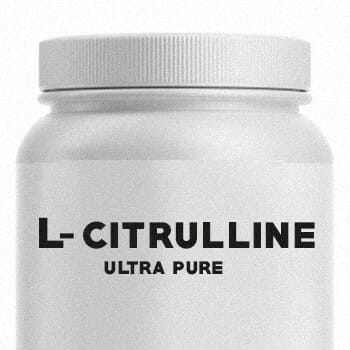
L-citrulline, an amino acid, boosts exercise performance by upping blood flow. It transforms into L-arginine and nitric oxide in your kidneys. L-arginine is great for easing anxiety symptoms, making L-citrulline a safe bet for pre-workout if you're prone to anxiety attacks.
L-citrulline also ramps up nitric oxide production, which improves blood flow and relaxes arteries, helping with issues like high blood pressure.
Check out best pre-workouts for vascularity; they're rich in L-Citrulline and other ingredients that enhance your pump. This supplement can lower your cardiovascular disease risk and support heart health in the long haul.
3. Creatine Monohydrate
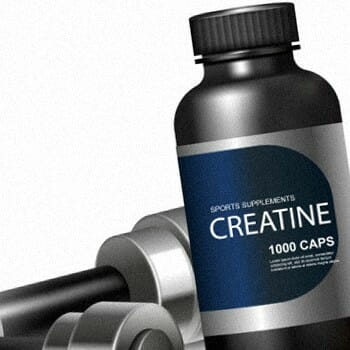
Creatine gives you fuel for a gym workout session. It’s good for:
- Improving strength
- Increasing lean muscle mass
- Helping the muscles recover more quickly when you exercise
Creatine also helps the possibility of achieving bursts of speed and energy and have better performance, especially during some of the high-intensity activities, such as weight lifting and sprinting.
When it comes to creatine and anxiety, studies done on people who have posttraumatic stress disorder (PTSD) and people battling depression found that they benefited and had better gym performance when taking creatine.
You May Also Like: Best Creatine Supplements
4. Beta-Alanine
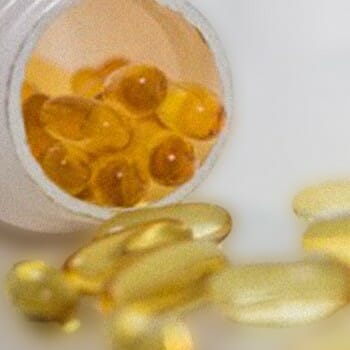
This is another amino acid, but non-essential. The body uses it to produce carnosine, which is stored in the skeletal muscles and helps achieve better athletic performance.
Its benefits include:
- Increases time to exhaustion — Different studies found that it helps exercise for extended periods of time.
- Benefits shorter-duration exercises — Because muscle acidosis limits high-intensity exercises, it helps achieve better work results during high-intensity and short-duration exercises.
- Increases muscle endurance — Boosts training volume for a bit and improves strength.
Most importantly, this supplement has an anti-anxiety effect. According to a study published in Springer Link, it achieves this effect by increasing BDNF levels, which is the growth factor in the central nervous system. What’s more, studies found that this supplement helps improve mood in general [4].
5. Niacin
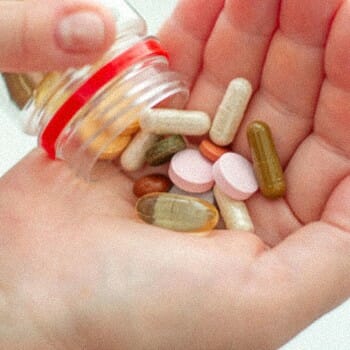
Niacin is another name for Vitamin B3, and you can take it through food such as beets, fish, peanuts, eggs, and milk.
You should make sure to take enough niacin, as its deficiency can lead to depression and anxiety in a person’s life [5]. You can try over-the-counter niacin supplements or take more of the food that’s rich in vitamin B.
Some of its side effects include:
- Rapid heartbeat
- Diarrhea
- Nausea and vomiting
- Diabetes
- Liver damage
However, if you don’t have any existing medical problems, there’s no reason why you shouldn’t try niacin.
References:
- https://www.webmd.com/vitamins/ai/ingredientmono-759/yohimbe
- https://www.mayoclinic.org/healthy-lifestyle/nutrition-and-healthy-eating/in-depth/caffeine
- https://www.healthline.com/nutrition/benefits-of-bcaa
- https://link.springer.com/article/10.1007/s00726-015-1952-y
- https://www.healthline.com/health/niacin-for-depression#causes
About The Author
You May Also Like






